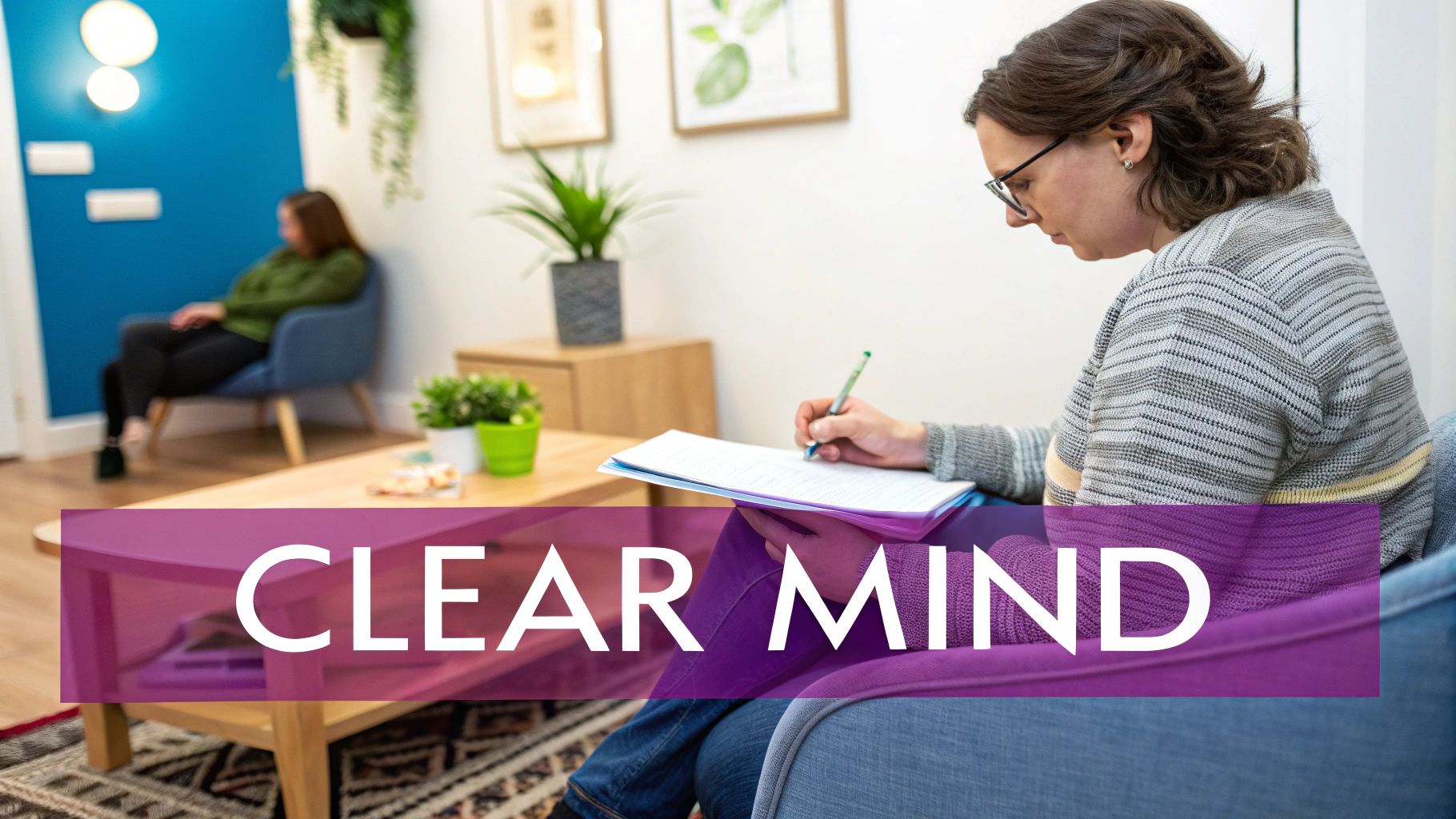
Feeling overwhelmed by anxiety? You’re not alone. Millions of people seek relief, and while medication can be a part of that, it’s not the only path to tranquility. Reclaiming your calm can involve exploring the power of your own mind and body through natural, evidence-based strategies. Understanding these alternatives empowers you to take control of your mental well-being and discover what works best for you.
For centuries, people have grappled with anxiety. From ancient meditative practices to modern therapeutic techniques like Cognitive Behavioral Therapy (CBT), the understanding of how thoughts, behaviors, and physical responses interact has greatly evolved. What was once attributed to mystical forces is now often explained through neuroscience and psychology, giving rise to effective, personalized approaches.
The most effective anxiety-reducing strategies address the root causes of anxiety, provide you with coping mechanisms for stressful situations, and promote long-term emotional regulation. They consider the interconnectedness of mind, body, and environment, offering a holistic approach to well-being.
In this article, we’ll explore a range of powerful alternatives to medication for managing anxiety. These include proven therapeutic methods, lifestyle adjustments, and emerging techniques. Whether you’re a student struggling with exam stress, a professional seeking enhanced focus, someone overcoming addictive habits, or simply an individual on a path of self-improvement, you’ll discover practical tools and strategies.
Anxiety can manifest in many ways and impact various aspects of life. Learning to navigate these complexities is key to cultivating a more peaceful existence. This journey of self-discovery can lead you to unlock your inner calm and live a more fulfilling life.

Cognitive Behavioral Therapy (CBT) is a leading alternative to anxiety medication. Its effectiveness is supported by extensive research, and it offers practical, long-term benefits. This structured form of psychotherapy addresses the root causes of anxiety by helping individuals identify and change negative thought patterns.
CBT emphasizes the interconnectedness of thoughts, feelings, and behaviors. It empowers patients to recognize distorted thinking and develop healthier cognitive habits. This approach gives individuals the tools to manage their anxiety effectively.
CBT typically involves a short-term, goal-oriented treatment plan, usually consisting of 12-20 sessions with a therapist. Unlike some therapies that explore past experiences, CBT primarily focuses on current challenges. Each session is structured, often including homework assignments. These assignments allow patients to practice new skills between appointments.
This skills-based approach is central to CBT. It equips individuals with tools they can continue using long after therapy has concluded, promoting long-term anxiety management.
The effectiveness of CBT for a range of anxiety disorders is well-documented. Studies have shown it to be as effective as medication in many instances, with the significant advantage of fewer side effects. Research by David Clark and Paul Salkovskis on a CBT protocol for panic disorder showed an 80% reduction in symptoms.
Online CBT programs, such as MoodGym, have also demonstrated promising results in research trials. This highlights the adaptability of CBT to various formats. Furthermore, renowned institutions like the Mayo Clinic incorporate CBT protocols into their anxiety treatment programs.
The popularity of CBT is largely due to pioneers like Dr. Aaron Beck, the founder of cognitive therapy, and Dr. David Burns, author of the influential book Feeling Good. Dr. Judith Beck of the Beck Institute and the Oxford Centre for Anxiety Disorders and Trauma have also played significant roles in the development and popularization of CBT.